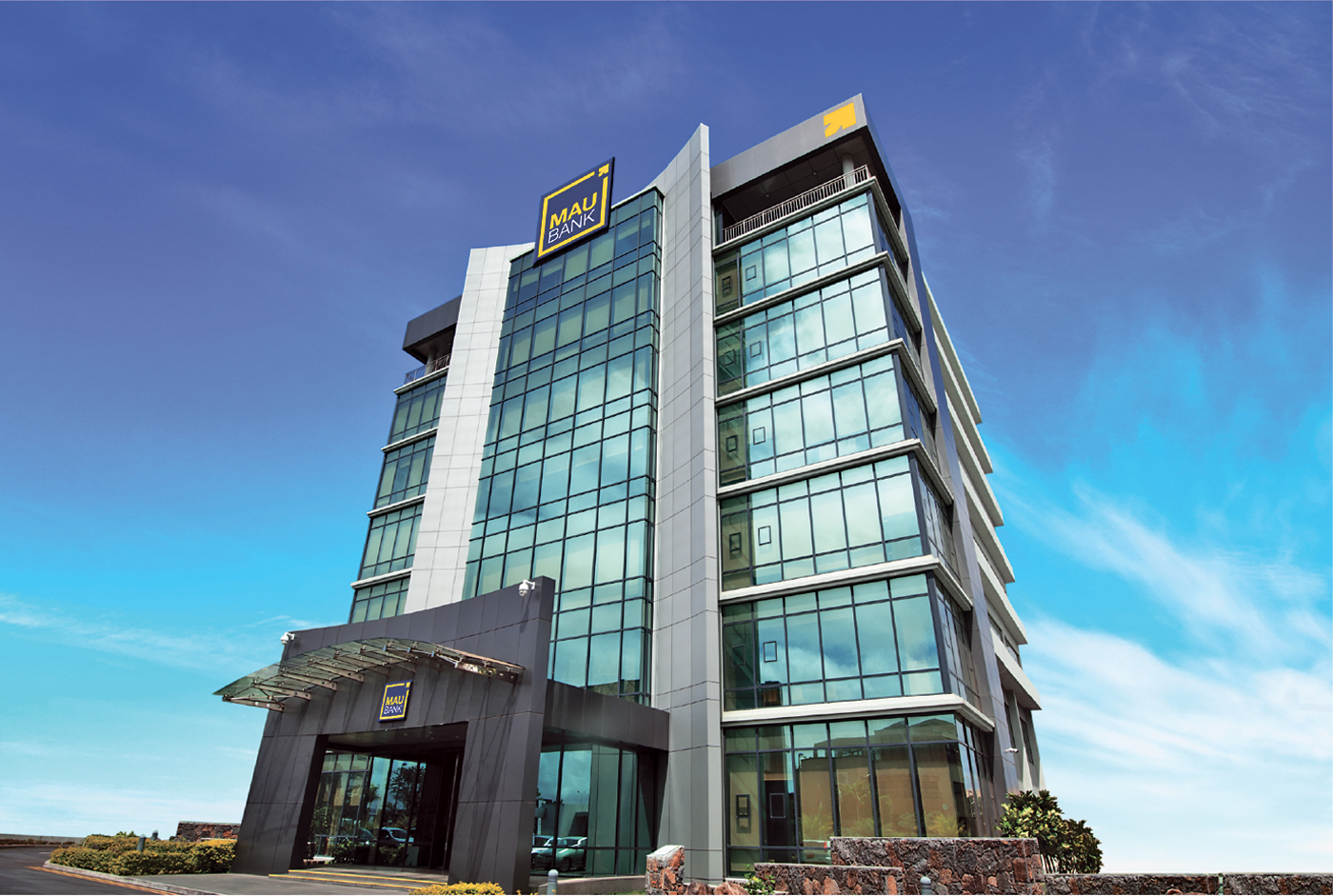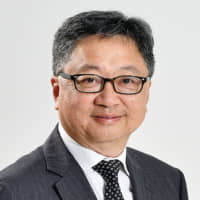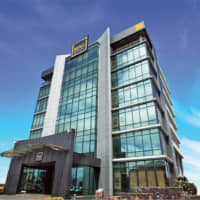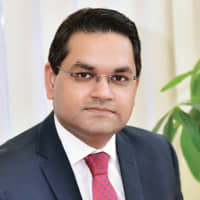With a safe, streamlined and stable business environment, the banking and financial services sector meets strict global standards and opens doors in Africa and elsewhere
With a strong track record in cross-border finance and investment, Mauritius’ banking and financial services sector is one of the region’s strongest and most transparent. Home to many international banks, investment funds, legal firms and corporate services providers, the industry has built a reputation every bit as strong as its modern infrastructure backbone.
The country is leveraging on its state-of-the-art facilities and innovative legal framework and ease of doing business regime, so offering a panoply of competitive financial products and services, noted the Economic Development Board (EDB). “(These) include private banking, global business, insurance and reinsurance, limited companies, protected cell companies, trusts and foundations, investment banking and global headquarter administrations, among others,” it added.
As a new member of the World Alliance of International Financial Centers (WAIFC), Mauritius will benefit from its place at the top table of global financial jurisdictions. The country is certainly among illustrious company, given the other 13 members include, Frankfurt Main Finance, Luxembourg for Finance, CityUK, Paris Europlace, Toronto Finance International, Abu Dhabi Global Markets and Casablanca Finance City.
The EDB, as the statutory body responsible for the promotion of the Mauritius International Financial Center (IFC), has also been voted onto the board of directors of the WAIFC. The association’s core objectives include the promotion of cooperation among financial centers in order to sustain long-term growth, exploration of cross-fertilization opportunities and facilitating exchanges of best practices. The WAIFC is additionally developing the dialogue with public authorities on an international level.
Also project-driven, WAIFC projects currently underway for the benefit of its members, civil society and the global community include a fintech empowerment and capacity-building initiative, a series of publications on the role of IFCs in financing the economy, and a financial center database.
EDB CEO, François Guibert, is delighted, saying: “(The) EDB will leverage on its membership to the WAIFC to advocate on the important role that the Mauritius IFC plays as a robust, sophisticated, and well-regulated platform, in driving prosperity in developing and emerging countries. This strategic alliance will further strengthen the value that Mauritius adds as an IFC in the global economy.”
Ten-year plan will shape future of IFC
With a strong regulatory framework, transparent legal regime, fierce commitment to international best practices and standards, and a favorable time zone (GMT+4) that allows trading on all global markets in a day, the island nation is an increasingly popular quality-efficient and cost-competitive IFC of choice for regional and global players.
The government is targeting sector growth of 5.5 percent per annum for the next decade, a figure that would see a doubling of the gross value added. With many countries embracing the digital economy, Mauritius is eager to promote fintech and blockchain technology to provide platforms for the trading of digital assets, and is also eyeing the creation of an international platform for debt structuring and listing. Industry guardian the Financial Services Commission (FSC) has embarked on a 10-year plan for the sector with the blessings of the government. There are three main focus areas, as FSC Chief Executive, Harvesh Seegolam, explained: “The first is reaffirming, reinstating, and further consolidating the position of Mauritius as an IFC for cross-border investments.
“This is already our forte and what we have been known for over the last 30 years. The second leg is corporate finance; with the markets maturing in Africa and in the Indian subcontinent, and with this development, the needs for these markets are changing. They are moving from purely equity financing deals to corporate finance deals that you would typically see in the developed world.
“Mauritius with its track record, expertise and trust can develop corporate finance and corporate banking at the regional level to become the main center that facilitates both of these types of activities, as well as credit financing. It also entails key activities such as treasury management that is very instrumental in this process. There is also a lot of focus on the corridor created between Asia and Africa through Mauritius.
“Trade financing, corporate financing, corporate banking and treasury management; all these activities fall under this limb of developing the Asia-Africa corridor with Mauritius becoming this center of finance and business that actually enables these productive movement of capital to happen.
“The third focus of our strategy is private wealth. As Africa emerges into the developing category of countries, there is a great need for private wealth solutions. Because of the trust and expertise we have in our jurisdiction, this has been identified as the key segment of activities and three main drivers we can further develop.”
Deputy Prime Minister and Minister of Energy and Public Utilities, Ivan Collendavelloo, believes the country’s financial services industry can be a hub for Japanese investors in Mauritius, but who may want to use the nation as a gateway into Africa.
“We have a serious network of management companies that specialize in investment in Africa, and have specific know-how of the continental markets,” he said. “The continental market would be attractive to Japanese investors. On this three-pronged approach, Mauritius and Japan, through The Seventh Tokyo International Conference on African Development, for instance, can push forward their overall global strategy.”
Capital markets milestone set by SBM
A highly successful, award-winning trailblazer and innovator in African Banking, SBM Holdings reinforced its excellent reputation with a 2017 collaboration that changed the continent’s capital markets forever. The high-profile deal with the African Export-Import Bank saw the supranational trade finance bank open its shareholding to the investing public through the issuance of depositary receipts.
Established nearly four decades ago, the company boasts a strong franchise in Mauritius, with a market share of more than 20 percent in domestic advances and deposits. The group has also built a significant presence in India, Madagascar, and Kenya, and also holds a banking license to operate in the Seychelles.
Given its excellent track record, SBM Holdings is an ideal partner for companies from Japan and elsewhere seeking to take advantage of the myriad of opportunities created by fintech, as K.C. Li Kwong Wing, chairman of SBM Holdings, explained: “Africa is the global leader when it comes to development, adoption and usage of mobile wallets.
The continent has more than 220 million registered mobile money accounts with more than 80 million active every three months. “With fintech, Africans benefit from convenient and affordable financial services, enabling them to even leapfrog other regions in some cases. The paradox of financial exclusion in Africa is that almost all the digital transformations that the financial sector will experience can be more easily established on the continent.
“Mobile banking, for example, allows access to the banking world without going through expensive procedures; Africa is becoming an e-commerce platform where operations can be multiplied more quickly than elsewhere. The expansion of the financial sector in Africa will attract more and more investors, and the continent especially will be served as a financial platform.”
To illustrate this point, Li Kwong Wing highlighted how SBM Holdings is the first Mauritian financial institution to partner with the leader of the digital financial service and lifestyle platform, Alipay, which is part of the Chinese giant Alibaba Group.
“Africa is the best place for technological breakthrough and expansion of companies,” he added. “Africa is leapfrogging so many countries in terms of technology, since it is adapting to the latest ones better than others. Technology, especially fintech, is addressing a real problem and thus serving a real need in Africa.
“If Japan really wants to enhance its engagement in Africa, it should not only think about helping Africa, but about participating with Africa in new technological ventures, in the launch of new generation banking services, and in new financing initiatives through private-public partnerships and joint ventures.
“Africa needs three important things: more connectivity, more physical infrastructures and finally smart and sustainable investments. Japan can have an important role in delivering all three. The African market is truly a basket of opportunities, which you can grasp by using Mauritius as a gateway.”
Banking players embrace open economy
As a small island nation that has always punched well above its weight, few doubt the government’s ambitious bid to build Mauritius’ reputation as the “Luxembourg of Africa” will be achieved.
By opening up the nation to overseas investors and implementing fundamental changes to the way the economy is managed, the country has enjoyed a greater transfer of technology, knowledge, talent and capital from developed countries in Asia and Europe.
Such goals chime with those of Mauritius Commercial Bank (MCB) Ltd., a subsidiary and the mainstay of MCB Group Ltd., and the longest standing and leading banking institution in Mauritius. Founded 180 years ago and with an increasingly prominent foothold in the region, MCB remains true to its guiding principle of assisting in the advancement of individuals, corporates and the country at large, thus playing a key role in the socioeconomic development of Mauritius.
MCB embraces an innovative culture, with significant progress made in upgrading its IT platform and developing its digital footprint. The bank, which leverages a global network of around 1,200 correspondent banks, has diversified its activities in sub-Saharan Africa and beyond, as gauged by participation in major cross-border deals and transactions, as well as the deployment of the “Bank of Banks” initiative.
“There is no point doing things in Africa if you are just mediocre; you have to be good at what you do,” stated Alain Law Min, CEO of MCB. “The fact we are investment grade helps a lot for us to go on the international market.
“We have just raised funds internationally to fuel our growth elsewhere. It was led by a Japanese Bank, Sumitomo Mitsui Banking Corporation (SMBC), which has been a long time partner for us. I first worked with them when I freshly joined the bank in 1998. They led a syndication for the first power plant in Mauritius in 1998, so they have been here for a long time. We’ve always worked very well with SMBC.
“We also have good relationship with Japanese financial institutions and we raised $800 million with the help of SMBC and Standard Chartered PLC on the international market. We are experts in trade and have gone into different countries to fund the oil and gas trading business.”
Industry awards underline scale of success
Mauritius Commercial Bank’s success has caught the eye of its peers with the bank recently named, for the fourth year in a row, the title of ‘Best Bank in Mauritius’ by banking industry bible Euromoney. That award came hot on the heels of the title of ‘“Regional Bank of the Year — Southern Africa” at the African Banker Awards 2019.
According to Min, such recognition was well deserved and is just reward for extensive engagement in many major projects to improve the quality of customer services, as well as the country itself, in relation to its sustainable development.
He is confident more acclaim will follow and is keen to work more closely with foreign partners from Japan and elsewhere. “With MCB Capital Markets we have partnered with African Development Bank for the launch of a bond issue,” he said. “It’s a very good sign; all of these are good signs to show there is confidence in the local jurisdiction. We can be a center to raise funds and people are interested in this. It is not a major investment, but every little bit counts. We want to be positioned to attract investment and people are interested in our bonds.
“We have a structure that enables us to look at the needs of specific segments of customers and Japanese clients will, of course, be most welcome. It has been 20 years since we first worked with Sumitomo, so we are quite comfortable in interacting with Japanese investors. We tick all the boxes when someone from Japan looks into Mauritius.”






